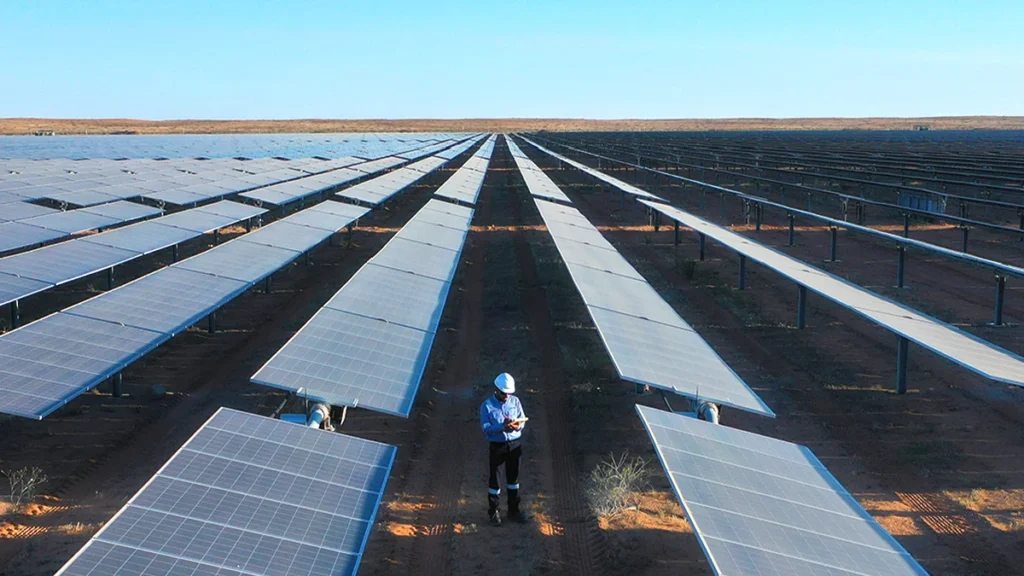- Web
- Feb 05, 2026
Crown Prince’s reforms spark solar adoption in Saudi Arabia’s corporate sector
-

- Web Desk Karachi
- Apr 21, 2025

RIYADH, SAUDI ARABIA: Saudi Arabia’s big businesses are embracing solar power as they seek to save on energy costs after the government eliminated electricity subsidies in the world’s largest oil exporter. Encouraged by decreasing photovoltaic panel costs and the state’s sustainability targets, several large companies, in sectors ranging from logistics to retail, have installed rooftop solar panels in recent months.
The Saudi government wants half of the kingdom’s power generation to come from renewable sources 2030 and to achieve net zero by 2060.
But experts say the critical factor driving recent solar take-up may be the phasing out of energy subsidies that began in 2018 as part of wider economic reforms, which included the rollout of large-scale renewable projects.
“It is a long-term investment, so to see the full return on investment, you need two to three decades, actually. But we’re encouraged by the intial result,” they say.
“Commercial clients, malls, warehouses et cetera, who pay the highest electricity tariff at SR0.30 per kilowatt-hour, are significantly more receptive to the business case for rooftop solar,” he said. “Industrial clients, who pay a lower tariff of SR0.18 are less responsive.”
Saudi companies that are part of multinational groups such as Ikea and GSK have deployed solar power at the encouragement of their parent companies, which have sustainability goals. Meeting such expectations has also been a factor for other Saudi groups, including logistics and transport businesses that have links to western markets, reported Financial Times.
“The primary objective is to contribute to supply chain sustainability in a positive way because, at the end of the day, this is also recognised by our vendors, our suppliers and our partners,” said a chief supply chain officer. “We partner with more than 200 suppliers across the globe from different industries, and they also have their own goals when it comes to going green.”
Hajj 2025: Saudi Arabia launches cooling projects
The shift has been helped by the supply of cheaper Chinese-made PV modules. Greenfield foreign direct investment from china into the kingdom from 2021 to October last year totalled $21.6 billion. About a third was directed towards clean technologies such as batteries, solar and wind.
But experts said the most important driver may be Crown Prince Mohammad bin Salman’s reforms to cut subsidies and diversify the economy, which drove up diesel prices by 44 percent last year.
“Although the declining cost of renewable energy has also played a role, the direction of the Saudi government’s fiscal reform – including the energy subsidy changes – has been a highly significant factor in encouraging companies to actively consider power generation options beyond fossil fuels,” said Shigeto Kondo, senior researcher at the Japan-based Institute of Energy Economics.




